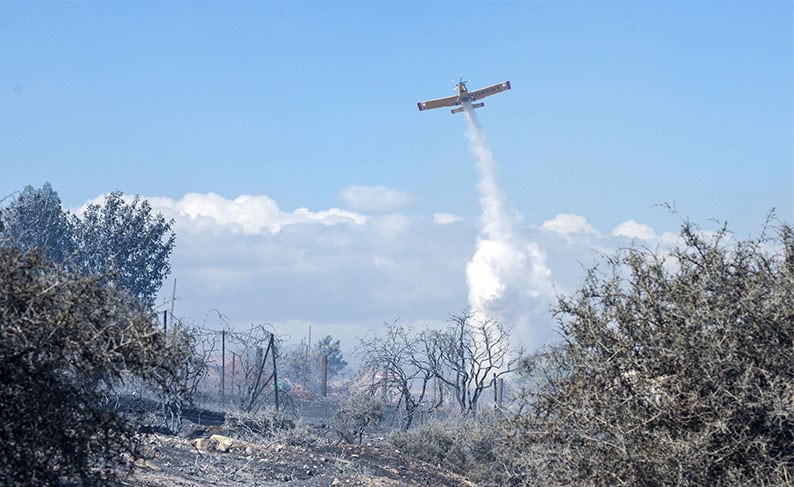In 2024, a total of 28 forest fires were recorded in Cyprus, burning a total area of 3,529 hectares, 25 per cent of which was in Natura2000 areas, the environment commissioner’s office said on Tuesday.
To mark Forest Protection Week, running from May 5 to 11, the commissioner’s office said it was important to remain on alert to save the forests.
“As we pass through spring and approach summer, it is necessary to prepare ahead and remain on alert regarding environmental challenges. It is important to reevaluate our practices and step up our efforts to protect forests and rural areas,” the office said.
It added that, according to data included in a European Commission report, 96 per cent of forest fires are caused by human activity.
In Cyprus in 2024, most of the forest fires happened in June while the fact that a quarter of the total area burned is within Natura2000 areas stresses the importance of protecting biodiversity and ecosystems from fires.
These fires, it added, “do not just affect the forest ecosystem, but bring about serious consequences to the economy, the quality of atmospheric air, the ground and water.”
Furthermore, the commissioner’s office said, beyond the immediate environmental and financial impact, the fires expedite the phenomenon of desertification.
“The loss of cover from vegetation and organic matter makes the soil vulnerable to erosion and moisture loss, thus reducing the ability to restore natural balances and over time exacerbates land degradation,” it added.
Furthermore, desertification directly threatens rural production and economic balance.
According to national data, about 57 per cent of Cyprus’ land is already showing signs of degradation and this percentage is expected to surpass 70 per cent by 2050.
“The pressure of the climate crisis in combination with heatwaves, prolonged periods of drought, reduced vegetation cover and low precipitation exacerbate the problem, mainly in dry and semi-dry areas,” the commissioner’s office said.
To tackle the problem, the commissioner suggested “measures that will contribute to the mitigation of these phenomena, including reforestation, soil cover for protection against erosion, organic and regenerative agriculture, and improving the efficiency of water use for irrigation, which remains the largest consumer of water in Cyprus and other Mediterranean countries.
At the same time, “the importance of utilising traditional landscape management practices is highlighted, such as terraces and other dry-stone structures that help retain soil, water and biodiversity,” it said.
It added that “these techniques are not remnants of the past, but can be incorporated in modern practices for the management, restoration and sustainable development of the countryside, with positive results for both the rural economy and the environment.
“The prevention of fires and addressing desertification are not two separate goals, but interrelated priorities that demand coordinated action and cooperation of departments, in the framework of the broader strategic management of the natural and man-made environment, as well as the active participation of citizens and the local communities,” the commissioner’s office said.






Click here to change your cookie preferences